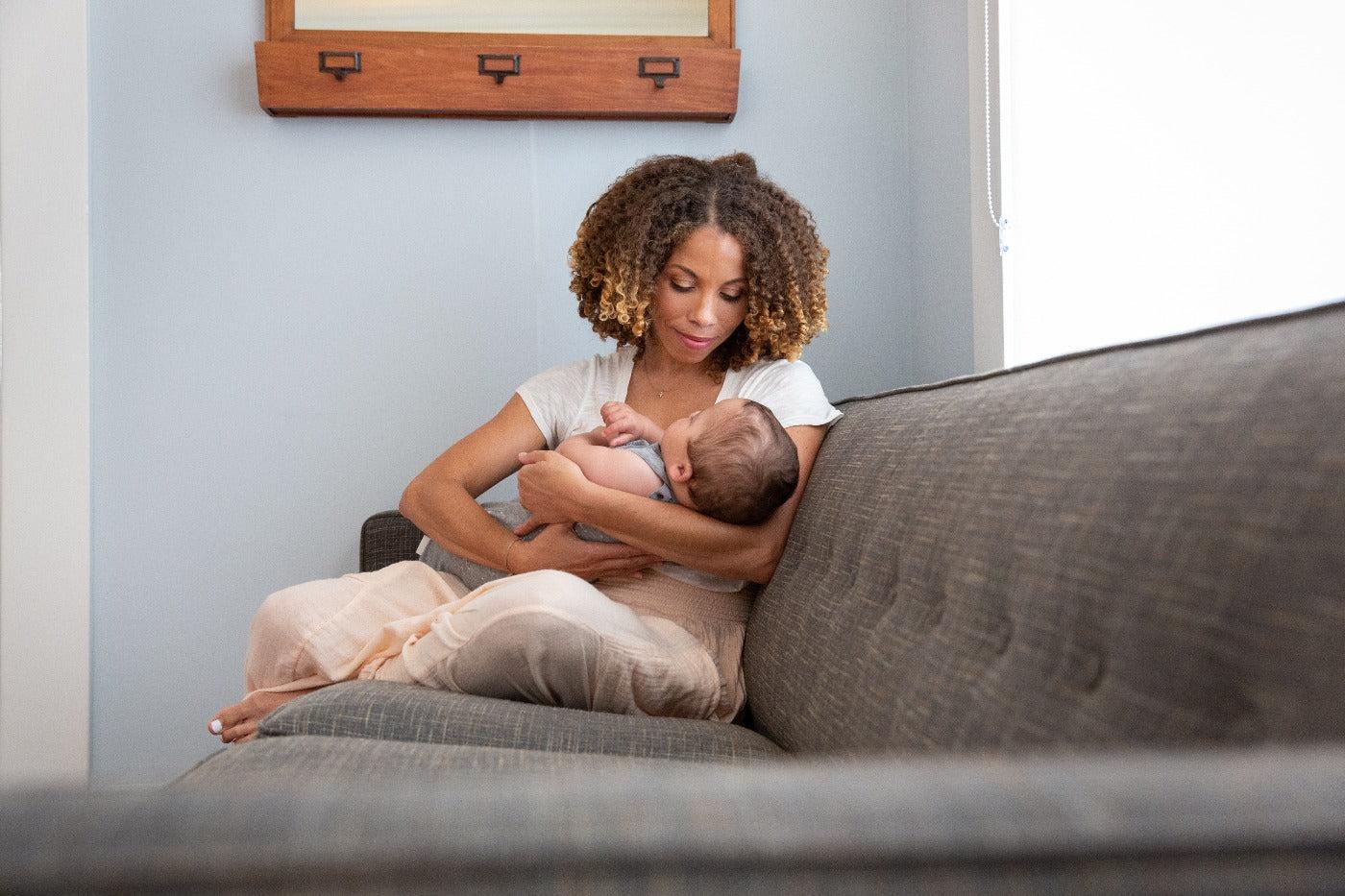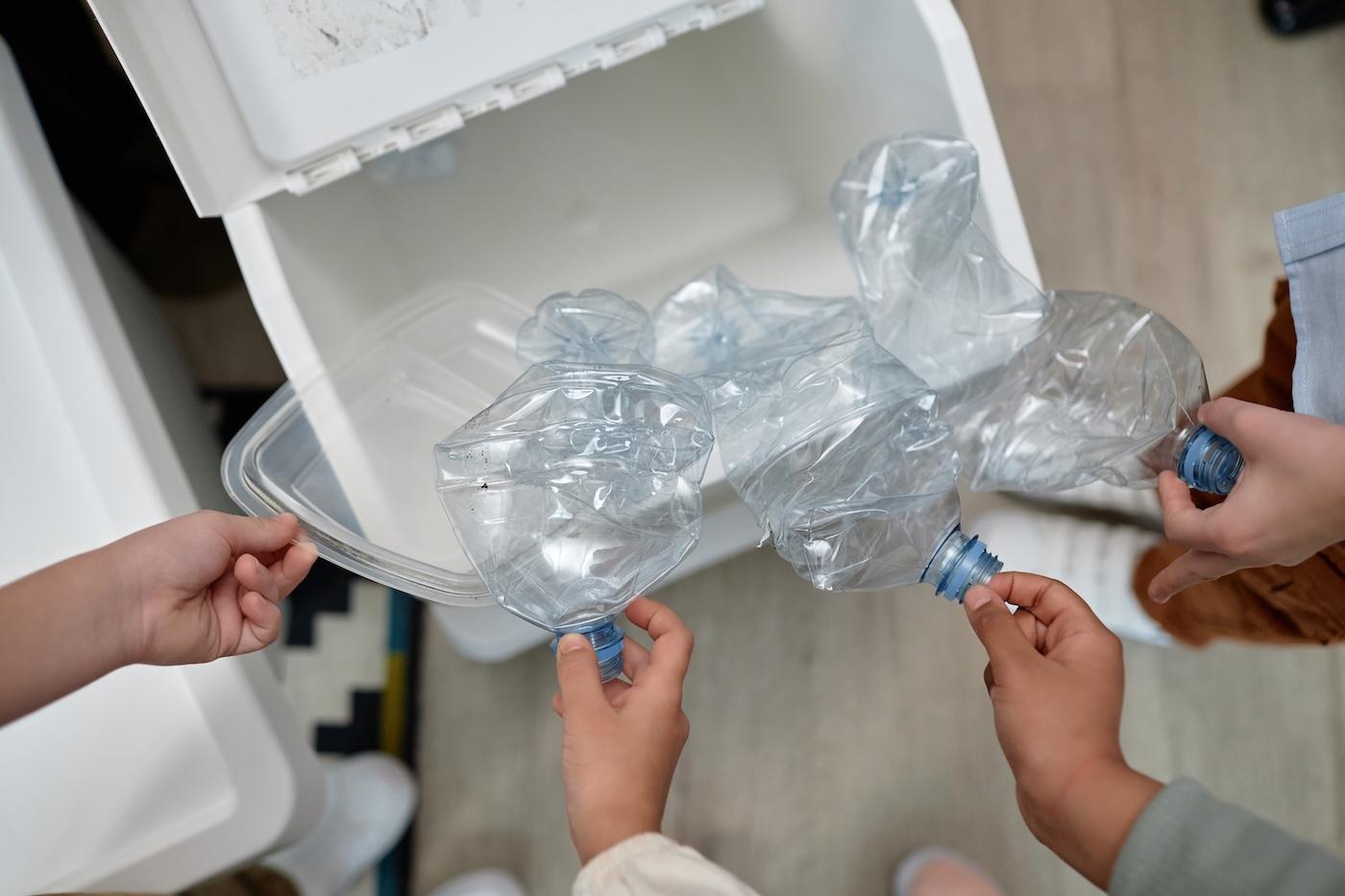PARENTS
Unpacking the Racial Disparities in Breastfeeding
While, overall, breastfeeding rates have been rising, racial disparities in breastfeeding persist for Black families.

Written by
Dr. Harvey Karp

Breastmilk has scores of nutrients especially designed for a baby human’s growing body and brains. It is literally alive with antibodies and tons of white blood cells to fight off infection. (In the first days after birth, it even contains as many infection-fighting cells as can be found in our blood!) For these reasons—and many more—working to increase national breastfeeding rates has been a major U.S. health goal for decades.
While, overall, breastfeeding rates have been rising, there are persistent racial disparities in breastfeeding that deserve our country’s attention.
Racial Disparities in Breastfeeding
CDC data shows that only 63% of Black women have ever breastfed versus 75% of white women. And on average, Black mothers only breastfeed for 6.5 weeks.
This racial disparity in breastfeeding reflects larger systemic issues in our healthcare system that disproportionately prevent Black women from getting the care and access to resources they need for their breastfeeding journey. For example, Black moms are nine times more likely to be offered formula by hospitals than white moms (according to Jennifer Hahn-Holbrook, assistant professor of psychology at Chapman University, co-author of the study “Racial and Ethnic Differences in Breastfeeding”).
There also tends to be less lactation support for Black parents. Hospitals serving larger Black populations were less likely to offer breastfeeding support following delivery, according to one report. Additionally, there tend to be fewer Black people in the lactation field—in fact, research shows that only 10% of lactation consultants are Black—which creates another barrier for Black parents.
And, because of some of the uglier parts of our country’s history—including the fact that Black women were forced to serve as wet nurses for enslavers’ children—Black women might have a complicated relationship with breastfeeding, which Irth App founder Kimberly Seals Allers points out on the Black Breastfeeding Week website. In addition, Black parents are more likely to be ineligible for or unable to afford to take unpaid family leave than white parents, which adds a hurdle when it comes to sticking with breastfeeding.
Consequences of the Black Breastfeeding Gap
This breastfeeding disparity can have serious consequences for Black families from a public health perspective. Nursing lowers the risk of SIDS by about 50%. That is an urgently needed benefit for Black babies whose risk of SIDS each year is double or triple that of white babies.
Breastfeeding doesn’t just decrease infant mortality rates, it can help prevent other health problems like upper respiratory infections, and Type II Diabetes and childhood obesity, which are more prevalent among Black people.
Nursing helps parents, too! Breastfeeding can significantly lower the risk of ovarian and breast cancer (and the longer you nurse, the lower the risk). In the past, Black women had a lower risk of breast cancer than white women, but that gap has closed. And that’s extra trouble for people of color because they have a much higher mortality if they do develop breast tumors. The American Cancer Society published the 2012 finding that the risk of dying from this disease is 42% higher for Black women than white women.
The Crying/Breastfeeding Connection
Persistent crying and exhaustion cause many folks to abandon nursing. Studies show that exhausted parents are much more likely to get depressed (which reduces breastfeeding rates by 50%) and to develop creeping doubts about the quality and adequacy of their milk.
That’s why, a personal mission of mine has been helping new parents master the skills needed to calm their baby’s fussing and get more sleep. Over the past 12 years, my Happiest Baby team has trained thousands of educators in dozens of countries to teach new parents the soothing/sleep techniques called the 5 S’s. They often quickly reduce infant crying, boost sleep, and even promote parental confidence and breastfeeding success.
Our educators work in programs supporting parents all across the U.S., from hospitals to military bases to teen parent clinics to WIC programs. And for several years, Happiest Baby classes have been taught in New York City’s Harlem Children’s Zone (the nation’s preeminent model for breaking the cycle of poverty) as part of their Baby College and Father Support curriculum.
But all of this work, of which I am so proud, is not enough.
The Future of Black Breastfeeding
Fortunately, through the dedication of many public and private agencies, the Black breastfeeding gap is shrinking. From 2000 to 2008, breastfeeding among Black parents increased from 47% to 59% and nursing for at least six months in that population has more than doubled (increasing from 17% to 35%).
That is great news for babies. However, our society still has a long way to go. Black parents need continued support in hospitals, doctor’s offices, workplaces, and from the community to totally close the breastfeeding gap.
Resources for Black Breastfeeding Parents
From social media groups to IRL meetups, we've rounded up a few resources that Black parents can turn to for breastfeeding support: Where Black Parents Can Find Breastfeeding Support.
Real Stories on Black Breastfeeding
Every parent's breastfeeding journey is a little different—and each one can provide a little insight and wisdom! Here are some stories from real Black breastfeeding mamas:
- Why Bailey Rollins Changed Her Career to Help Black Moms Breastfeed
- After a 'Rocky' First Breastfeeding Journey, Natasha Greene Learned That Support Is Key
- Soline Harrison Never Thought She'd Breastfeed—Here's Why She Changed Her Mind
- Backlash Didn't Discourage Chevi Naden Osborne From Breastfeeding—Read Her Story!
- How Alexandra Maurer Is Creating More Breastfeeding Support for Mothers of Color
- Sustainability Thought-Leader Dominique Drakeford Shares Her Breastfeeding Experience
- Influencer JaLisa Vaughn Shares How Her Journey Did and Did Not Go as Expected
- Rachel Nicks, Founder of Birth Queen, Discusses Her Breastfeeding Journey—and Words of Wisdom
Related Reading:
- Where Black Breastfeeding Parents Can Get Help
- How Families Benefit From White Privilege
- Mental Health Resources for Black Parents
Disclaimer: The information on our site is NOT medical advice for any specific person or condition. It is only meant as general information. If you have any medical questions and concerns about your child or yourself, please contact your health provider.
SHARE THIS ARTICLE
MOST LOVED
Sleepytime Sidekicks












